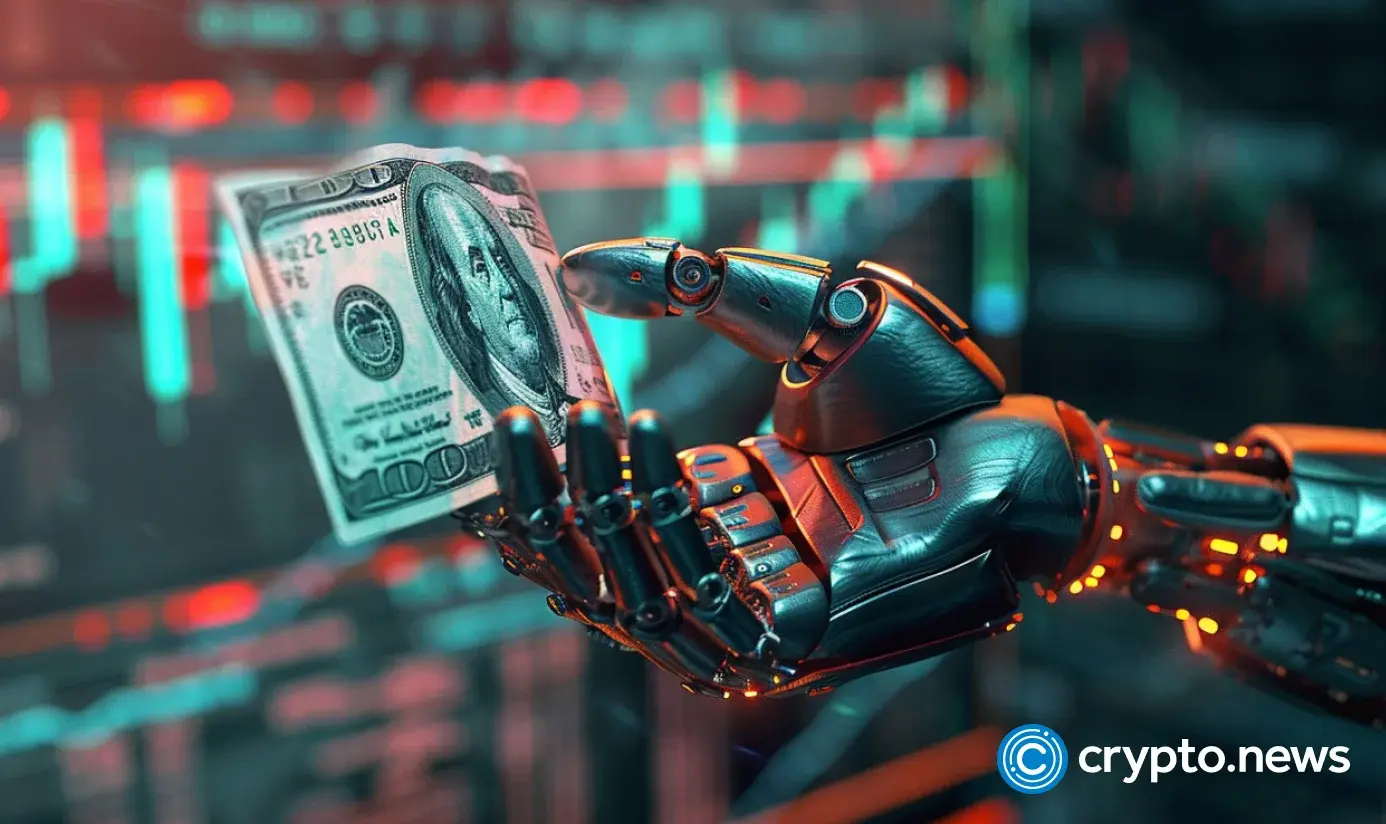
Is the intersection of Mistral AI’s funding a glimpse into the future of decentralized finance and AI-powered technologies?
Table of Contents
Mistral AI, a French tech startup, has recently concluded a large funding round, raising €600 million (approximately $640 million). This funding, a blend of equity and debt, has raised Mistral AI’s valuation to $6 billion.
Founded just over a year ago, Mistral AI specializes in developing AI models, similar to those used by industry leaders like OpenAI, valued at over $90 billion.
These AI models, known for their applications in chatbots and other AI-driven services, require large investments in advanced infrastructure, such as Nvidia’s high-performance semiconductors.
Mistral AI has attracted substantial attention and support, as evidenced by previous investments from major entities, such as Microsoft’s $16 million investment in February 2024.
Moreover, Mistral AI has taken steps towards openness and collaboration by releasing several of its AI models under open-source licenses, enabling developers worldwide to leverage and build upon Mistral AI’s technology.
Beyond financial achievements, Mistral AI’s partnerships with cloud providers like Microsoft Azure cement its strategy to integrate AI solutions into diverse technological ecosystems and expand its global footprint in the competitive AI market.
But what does it mean for the crypto market, and why should you take notes? Let’s find out.
How does it impact crypto?
Mistral AI’s recent funding round highlights the increasing demand for advanced AI technologies, which aligns with the infrastructure needs of global crypto mining operations.
As AI models continue to evolve, necessitating high-performance semiconductors and extensive data processing capabilities, the synergy with crypto mining — also reliant on powerful computing power and secure data management—becomes increasingly apparent. This commonality could lead to opportunities for resource sharing and collaboration between the two industries.
Simultaneously, the integration of AI with blockchain presents promising opportunities for cryptocurrencies. Blockchain’s decentralized structure and transparent ledger system provide solutions to challenges such as data security and transparency in AI applications.
This alignment not only enhances the reliability of AI systems but also stimulates innovations in the crypto space, potentially improving efficiency and security across decentralized finance (DeFi) platforms.
Juan Leon, a senior crypto research analyst, projects the economic impact of this convergence, suggesting that AI and crypto combined could contribute up to $20 trillion to the global GDP by 2030.
Practically, Mistral AI’s funding is just a starting point that could accelerate developments in AI infrastructure, potentially increasing demand for computational power and data storage—and aligning more closely with the similar needs of the crypto sector.
Giants watching and making moves
At the recent Cornell Blockchain Conference, Microsoft’s Yorke Rhodes discussed the evolving relationship between AI and blockchain.
He hinted at the prospect of AI-powered agents leveraging blockchain’s capabilities, signaling the early stages of exploration in this convergence.
Microsoft’s approach involves optimizing existing technologies rather than developing foundational blockchain infrastructure (L1). Rhodes cited their focus on enhancing efficiencies, such as through layer-2 blockchain rollups, which streamline transactions and improve scalability.
Industry voices, including Matt Stephenson from Pantera Capital, also agreed on cryptocurrencies in supporting AI advancements. Stephenson mentioned that crypto could serve as a fundamental infrastructure for AI models, particularly transformative and diffusion models.
These dynamics intensify with OpenAI’s role, recently embroiled in partnerships with Apple that could redefine industry alliances.
Recent reports suggest the integration of OpenAI services into Apple products. Microsoft, a key investor in OpenAI, has been watching these developments closely.
The strategic implications for Microsoft are clear: a successful Apple-OpenAI alliance could potentially disrupt Microsoft’s own AI initiatives, prompting a careful reevaluation of their competitive strategy in AI and cloud computing, and crypto could become a sidekick in this exercise.
The road ahead
As AI and crypto technologies continue to evolve, their combined impact on global economies will likely be far-reaching. From enhancing operational efficiencies to promoting innovation and economic growth, these technologies could reshape how companies and economies function and conduct business.
In addition, there is brewing tech rivalry between giants that might adopt various use cases of blockchain and AI to become more competitive.
Microsoft is still reeling from the alliance of Apple and OpenAI, which could alter the dynamics at play, while Google watches from a distance, making the interplay even more interesting.
It’s fair to conclude that things are accelerating at full force, and the funding in Mistral AI is one of the starting points of a large showdown that is yet to happen.
This article first appeared at crypto.news

